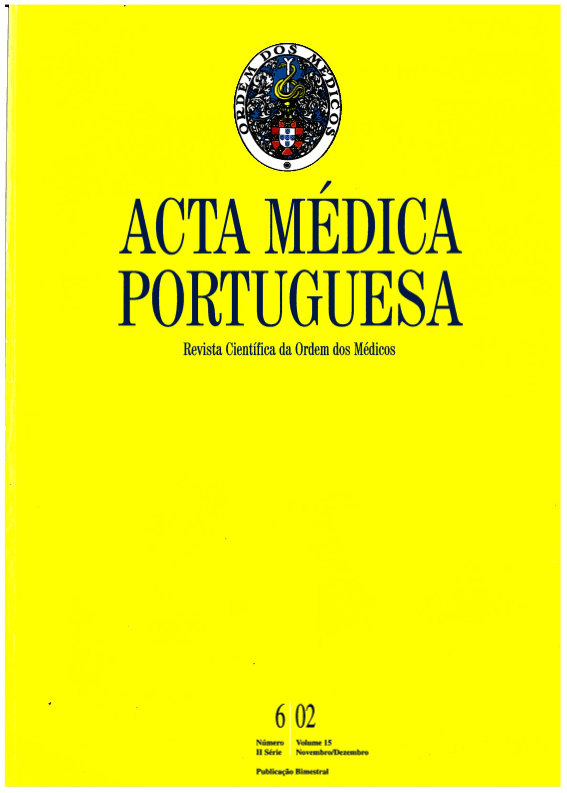Glucose-6-phosphate dehydrogenase deficiency, neonatal hyperbilirubinemia and Gilbert syndrome.
DOI:
https://doi.org/10.20344/amp.1986Abstract
The aim of this work was to evaluate the influence of abnormal UDP-glucoronosyltransferase-1 (UGT1A1) gene variant, on the incidence and severity of neonatal hyperbilirubinemia, in glucose-6-phosphate dehydrogenase (G6PD) deficient newborns. The A(TA)nTAA region in the promoter of the UGT1A1 gene was analysed in 20 children with G6PD deficiency. Fourteen of these children had the African type variant (G6PDA-) and 6 had different variants (G6PDNara, G6PDGuadalajara, G6PDDurham, G6PDTomah, G6PDAveiro e G6PDNashville) related to chronic nonspherocytic haemolytic anaemia (CNSHA). The existence of a positive history of neonatal hyperbilirubinemia, as well as its severity was registered. The incidence of neonatal hyperbilirubinemia was increased in this group of children (90%) and was not associated with abnormal alleles of the UGT1A1 gene. It was not possible to assess the influence of abnormal alleles in the severity of the neonatal hyperbilirubinemia. However, these abnormal alleles did not account for the severity of jaundice in children who presented variants related to CNSHA, since 5 were treated with an exchange transfusion and none presented abnormal alleles.Downloads
Downloads
How to Cite
Issue
Section
License
All the articles published in the AMP are open access and comply with the requirements of funding agencies or academic institutions. The AMP is governed by the terms of the Creative Commons ‘Attribution – Non-Commercial Use - (CC-BY-NC)’ license, regarding the use by third parties.
It is the author’s responsibility to obtain approval for the reproduction of figures, tables, etc. from other publications.
Upon acceptance of an article for publication, the authors will be asked to complete the ICMJE “Copyright Liability and Copyright Sharing Statement “(http://www.actamedicaportuguesa.com/info/AMP-NormasPublicacao.pdf) and the “Declaration of Potential Conflicts of Interest” (http:// www.icmje.org/conflicts-of-interest). An e-mail will be sent to the corresponding author to acknowledge receipt of the manuscript.
After publication, the authors are authorised to make their articles available in repositories of their institutions of origin, as long as they always mention where they were published and according to the Creative Commons license.









